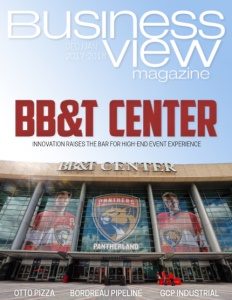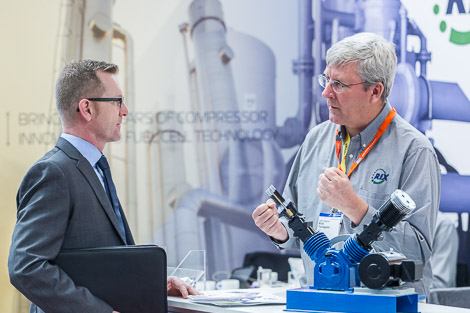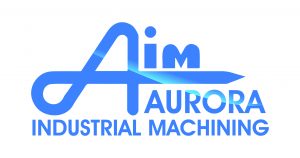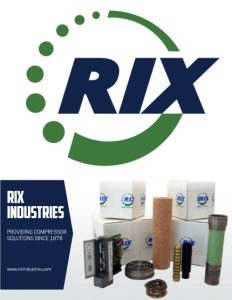RIX Industries
Providing Compressor Solutions since 1878
Business View Magazine interviews Chris Allen, Business Development Specialist for RIX Industries, as part of our focus on Hydrogen + Fuel Cells North America.
Over the last 140 years, RIX Industries has evolved and excelled to earn its reputation as the leader in American-made compressor technology. In business since 1878, RIX has been proudly serving the U.S. Armed Forces for more than 120 years, and specializes in applying oil-free technology to high-pressure applications and other highly demanding environments. Innovative products include a wide range of pneumatic energy storage and transfer system solutions.
RIX is built on trust, experience, and a solid base of repeat customers – domestic and international. Clients include industrial gas companies, refineries and chemical plants, offshore oil platforms, OEMs, and government agencies, making RIX a global player in homeland defense and industrial innovation.
Recently, Business View Magazine spoke with Christopher Allen, RIX Business Development Manager, about the company’s extensive history, and its role in the development of emerging fuel technology solutions for the transportation industry. The following is an edited transcript of that conversation.
BVM: Can you give us a historical snapshot of RIX from the early days through its evolution?
Allen: “Mr. E.A. Rix founded the company back in 1878 in San Francisco. At that time, the gold rush had grown the area into a bustling industrial and mining region. Mr. Rix, an engineer by training, revolutionized the field of compressor technology patenting novel pneumatic drilling designs. In 1911, Mr. Rix created produced the first production high pressure air compressor for the U.S Navy, starting our 120-year history serving the U.S. military and its allies.”
BVM: What type of niche markets do you service?
Allen: “Thirty or forty years ago, we started branching out with compressor solutions for industrial usage. Our strategy has always been finding niche applications that are small and underserved. One of our core markets for these applications is oxygen compression. It’s a challenging gas to work with, where oil-free is an absolute must.
“A large part of our history on the military side is supporting and understanding the needs of the Navy; branching out and finding small- to mid-sized niches where there’s a clear gap in the technology base that’s commercially available, and then fulfilling those demanding needs.”
BVM: Tell us about the RIX operation – locations, territory, employees…
Allen: “Our headquarters are in Benicia, California, and a lot of our complex manufacturing is done there as well. We have a second manufacturing facility in Sparks, Nevada that is focused on volume production. We also have satellite sales offices and partner offices in Europe, Asia, and throughout North America.
“RIX currently employees 140 people, split into four divisions or MITs (Market Integrated Teams). Our DOD (Dept. of Defense) group services foreign and domestic military customers; our Aero MIT, which is strictly focused on aerospace applications, and our commercial MIT which handles commercial and industrial gas applications. Our fourth MIT is the linchpin that holds it all together, AMS (Aftermarket Service). This organization serves our customers ongoing parts and support needs.
“From a geographical perspective, we service the entire globe. We have equipment on a large portion of the U.S. Navy fleet, and if there’s ever an issue – regardless of where it is in the world – our technicians are on a plane to the middle of nowhere to make sure that service is brought back online as quickly as possible.”
BVM: How is your customer base divided?
Allen: “Our Customers are dived according to our MIT structure. DOD primarily serves the U.S Navy, which is a very large and complex customer with a lot of different agency interactions. Being the oldest and largest group, most of our business goes through the DOD.
“Our aerospace group is the new kid on the block. Founded a little over 10 years ago, it’s a relatively new addition to our product portfolio and capabilities. Our commercial group has been around for a long time and serve the largest set of customers across a number industries.”
BVM: How do you differentiate yourself from the competition?
Allen: “We’ve been in business a long time; many of our employees have 20 to 40 years’ experience with RIX, and know our products and the industry extremely well. Often our clients find themselves with a challenging problem to solve and cannot find anyone to solve it. Our expertise is finding those solutions that nobody else can get to.
“Going beyond that, RIX invests heavily in relationships and customer partnership. So, when you work with us you get a consummate professional who truly works to understand your problems, and how our expertise and products can be used to maximize customer value. When you call in, you’re not going to get a sales guy looking up what you need in a parts catalogue. Our people identify and optimize the solution for you. That’s the value our customers really appreciate.”
BVM: What’s on tap as far as upgrades, new technology, infrastructure, initiatives?
Allen: “We’re always looking for new customers and partners that value the best total solutions we provide. As far as new market development, we’re looking heavily at the transportation sector from a sustainability perspective, reducing greenhouse gases and emissions, and how our technology and expertise can be of value. We’re actively pursuing and developing new processes, tools, and products that help support the transformation of the transportation sector – mainly the growth of compressed natural gas as a transport fuel, and hydrogen as a transportation fuel for use in fuel cell vehicles.”
BVM: Five years down the road, what are the long-term objectives for RIX?
Allen: “It’s all about growth. In that time frame, we’d be looking to tout the benefits and achievements of partnership with folks like Plug Power, who are revolutionizing the material handling world in warehouse distribution and operations. They’re replacing batteries in forklifts with fuel cells, and improving operations at places like Wal-Mart and Target distribution centers. Finding and executing those types of partnerships and helping our customers grow and develop new markets such as the hydrogen fuel cell infrastructure are high on our list.
“There’s a lot of work going into building out and creating new markets for hydrogen that currently do not exist. We plan on playing an important role in facilitating the expansion of hydrogen infrastructure; bringing down the capital costs and increasing reliability. There are two large FCEV (fuel cell electric vehicle) programs to increase the number of hydrogen refueling stations underway in the US. One is in the northeast corridor, and the other is in California where we plan on investing heavily. This is going to be revolutionary in transforming how this country moves about. We see that as a strategic, long-term objective that we are very bullish on.”
BVM: Which is harder to work with – hydrogen or oxygen?
Allen: “They are both difficult molecules to work with. Oxygen is an interesting beast, in that it’s the ultimate oxidizer and burns very intensely. At high pressures, the smallest hydrocarbon contamination poses a huge fire risk. This is a challenge in the compressor world, which is why our oil-free technology and experience is of value in minimizing risks associated with high pressure oxygen.
“Hydrogen is also extremely flammable and presents additional challenges from a technical perspective. It’s a very small molecule. Preventing leaks, so you’re not losing valuable product is a challenge. There are also chemical compatibility challenges with hydrogen – embrittlement of metal, and degradation of material properties. The RIX value proposition is our ability to tackle these problems and come up with unique solutions that our competitors are either ill-equipped or unwilling to solve.”
BVM: Are there any long-term business relationships that help make RIX successful?
Allen: “Most of our cost-of-goods sold are raw materials. So our vendors are vital to our ongoing success – you don’t stay in business for 140 years without forming and maintaining very strong relationships. That is something of paramount importance to us.
“Some of our suppliers have been in business almost as long as us, and we’re very happy to have a broad base of suppliers that are dedicated to our success as well.”
BVM: What are the key points that our readers should know about RIX Industries?
Allen: “I can’t help but bring up corporate culture. RIX is very much a family-oriented organization. One of the key values of being a family-owned business is that we often get the chance to invest strategically – not only in our products, but our people and initiatives, since we’re not constrained to report to investors on a quarterly basis.
“It gives us the ability to go after big goals with strategic partners. That brings up an interesting initiative we have going on right now – developing a central tire inflation system that’s a novel product for the military and commercial spheres. It maintains and monitors tire pressure, so you can increase fuel efficiency and things of that nature.”
BVM: Dedication, values, expertise – that seems like the perfect mix to keep RIX at the forefront of innovation for years to come.
Check out this handpicked feature on The Greater Richmond Transit Company – On tap for a historic year.
AT A GLANCE
WHO: RIX Industries
WHAT: Manufacturer of pneumatic energy storage and transfer system solutions
WHERE: Headquarters in Benicia, California
WEBSITE: www.rixindustries.com
PREFERRED VENDORS

CEM Corp. – CEM Corporation, a private company based in Matthews, North Carolina, is a leading global provider of innovative laboratory instrumentation. The company has subsidiaries in the United Kingdom, Germany, Italy, France, and Japan, as well as a global network of distributors. CEM designs and manufactures systems for bioscience, chemical synthesis, analytical laboratories, and compositional testing. Its products are used in many industries including pharmaceutical, biotech, chemical, and food processing, as well as academic research. – www.cem.com

Milton S. Frank Co. – Milton S. Frank Co. is a privately held, Woman-Owned Business, dedicated to providing high quality, personalized, and customized engineering solutions to all process industry customers, including the biotech, pharmaceutical, oil refineries, food, beverage, dairy, mining, minerals, wine, municipal water, and wastewater treatment industries, throughout Northern California and Western Nevada. – www.msfrank.com
DIG DIGITAL?



